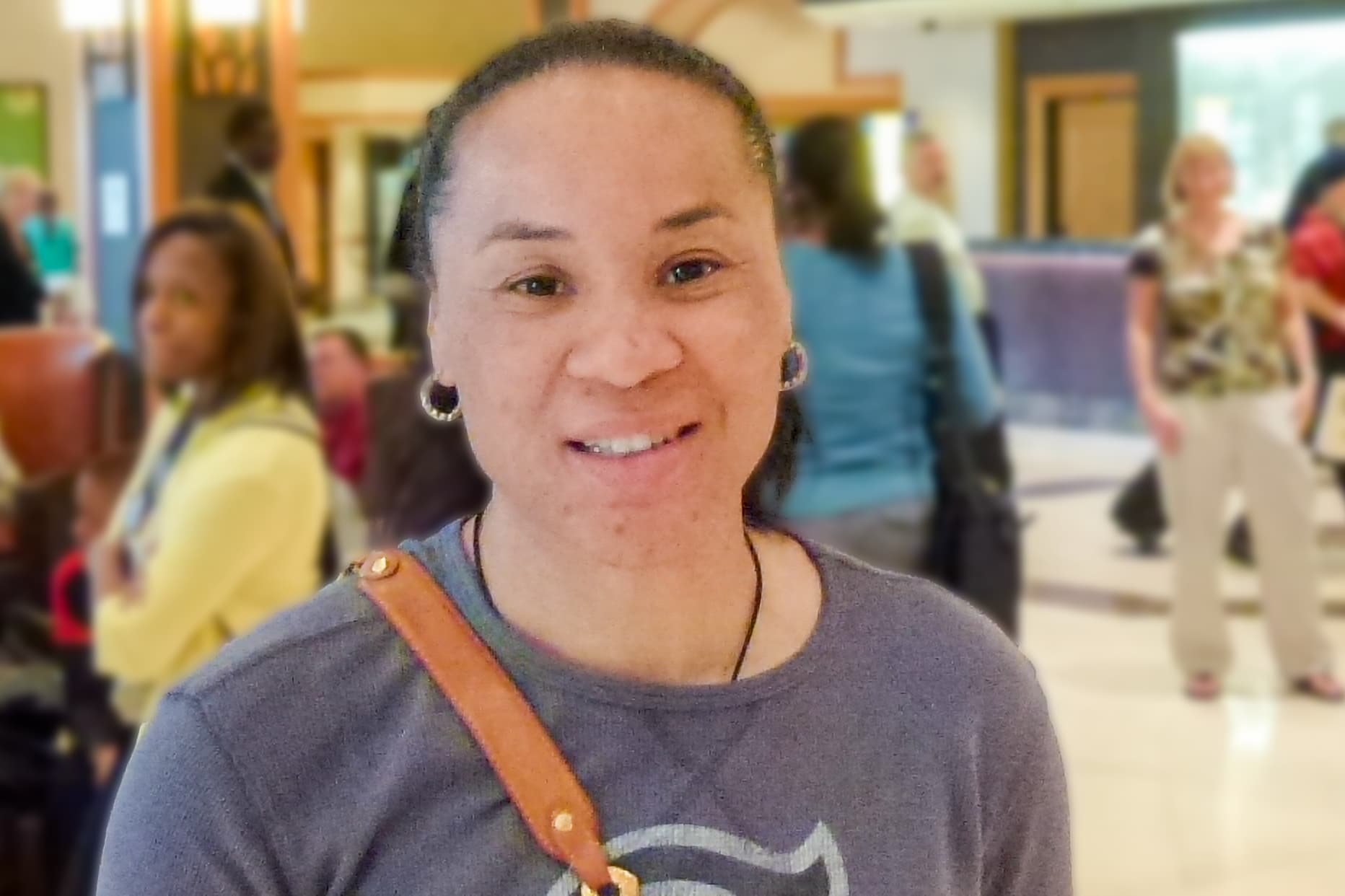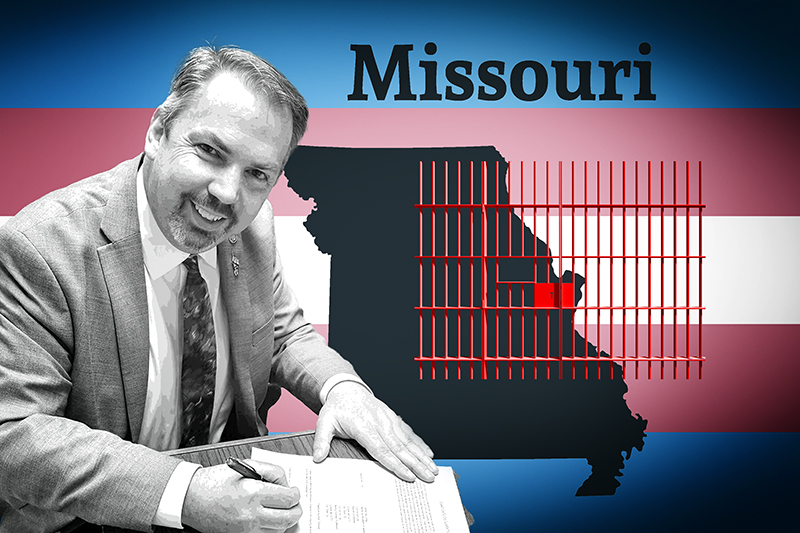Mississippi Bans Doctors from Helping Trans Youth
The governor has signed a bill into law that would penalize doctors who assist trans youth in transitioning.

Mississippi Gov. Tate Reeves has signed a law that bans medical professionals from providing gender-affirming health care treatments to transgender youth to help them transition.
The “Regulate Experimental Adolescent Procedures Act” takes effect immediately and prohibits individuals from engaging in conduct that “aids or abets” a minor in accessing gender-affirming treatments like puberty blockers, hormones, or surgical interventions. (In practice, surgery is rarely recommended for those under age 18.)
Practitioners who violate the law risk having their medical or professional licenses revoked if they perform surgeries, prescribe hormones, or even refer a minor patient to another physician who will recommend such treatments.
The law also allows health care providers who prescribe such treatments to be sued by former disgruntled patients for a period of up to 30 years.
The law also prohibits private insurers and Medicaid from reimbursing families for the costs incurred by pursuing gender-affirming care for minors.
As has become typical for Republican-sponsored legislation, the law exempts surgical procedures and treatments for people born intersex, meaning parents can force intersex children to undergo unnecessary surgeries without their consent in order to force them to “conform” to one gender or another (usually based on the parents’ personal preferences).
The law also provides exceptions for doctors who may recommend treatments for people who suffered infections, injuries, or disorders from botched gender-affirming treatments.
“There is a dangerous movement spreading across America today,” Reeves said on Tuesday during a bill signing ceremony. “It’s advancing under the guise of a false ideology, and pseudo-science is being pushed on to our children through radical activists, social media and online influencers. This dangerous movement attempts to convince these children that they’re just a surgery away from happiness.”
Reeves’ comments appeared to be referencing the idea of “rapid onset gender dysphoria,” a debunked theory that claims young people — especially those assigned female at birth, and those who claim to have so-called “autism” or similar neurological or developmental disorders — will identify as transgender due to “social contagion” or peer pressure.
The newly enacted law makes Mississippi the sixth state to pass either a complete or partial ban on gender-affirming care, although complete bans in other states, such as Alabama and Arkansas, have been halted as lawsuits challenging those laws work their way through the courts.
Other states, such as Utah and Arizona, have enacted partial bans, blocking all surgical treatments on minors. Utah’s law also imposes a permanent moratorium on puberty blockers for any youth who has not already been receiving hormonal interventions for at least six months.
The passage of the Mississippi law continues the trend of Republican-dominated legislatures and Republican governors taking aggressive action to prohibit doctors from providing gender-affirming care to trans-identifying minors.
A similar law signed by South Dakota Gov. Kristi Noem is slated to go into effect on July 1, while Tennessee Gov. Bill Lee has promised to sign a nearly identical bill recently approved by the state legislature into law in the coming days and weeks.
Other states, including Oklahoma and Texas, have taken steps to restrict access to gender-affirming treatments for minors, but currently have no statewide laws explicitly prohibiting doctors from prescribing such treatments.
Some critics allege that provisions — such as those in Mississippi’s law — allowing former patients decades-long windows during which they may file lawsuits if they experience “regret” are intended to cow doctors into refusing to provide gender-affirming treatments to any individual, even adults, for fear of being sued.
As a result, they argue, the possibility of such litigation will simply encourage medical professionals to refuse to accept transgender patients, or leave them to struggle with their feelings of gender dysphoria on their own while remaining in their assigned sex at birth.
Proponents of such bills argue that they are necessary to protect minors from making choices that they may later come to regret, based on the idea that gender is fixed at birth and cannot be changed, as well as the oft-repeated (and debunked) assertion that most youth who identify as transgender ultimately choose to remain in their birth gender. In fact, a recent study found that 94% of trans-identifying youth continued to identify according to their gender identity.
The American Civil Liberties Union and its Mississippi affiliate lamented the law’s passage.
“This care was already difficult to access across the state for transgender people of any age, but this law shuts the door on best-practice medical care and puts politics between parents, their children, and their doctors,” the organizations said in a statement. “Our politicians continue to fail trans youth, so it is up to each and every one of us to rise against their fear and ignorance and surround these young people with strength, safety, and love.”
Tina Fritz, a PFLAG Gulfport parent, criticized the law as a “harmful legislative solution to a problem that doesn’t exist,” noting that the bill “goes against evidence-based care as outlined by the American Academy of Pediatrics.”
“Mississippi lawmakers have willfully decided to ignore proven scientific studies and the self-reported lived experiences of trans youth in the state,” Sybastian Smith, organizing director at the National Center for Transgender Equality, said in a statement.
The Trevor Project, the nation’s top suicide prevention and crisis intervention organization for LGBTQ youth, denounced the Mississippi law.
“Barely two months into the year, lawmakers in three states have made it their priority to deny transgender and nonbinary youth the ability to access best-practice medical care that many rely on to simply lead happy, healthy lives,” the organization’s Kasey Suffredini said in a statement. “Decisions around medical care should be made between parents, patients, and doctors — not by politicians.”
Support Metro Weekly’s Journalism
These are challenging times for news organizations. And yet it’s crucial we stay active and provide vital resources and information to both our local readers and the world. So won’t you please take a moment and consider supporting Metro Weekly with a membership? For as little as $5 a month, you can help ensure Metro Weekly magazine and MetroWeekly.com remain free, viable resources as we provide the best, most diverse, culturally-resonant LGBTQ coverage in both the D.C. region and around the world. Memberships come with exclusive perks and discounts, your own personal digital delivery of each week’s magazine (and an archive), access to our Member's Lounge when it launches this fall, and exclusive members-only items like Metro Weekly Membership Mugs and Tote Bags! Check out all our membership levels here and please join us today!























